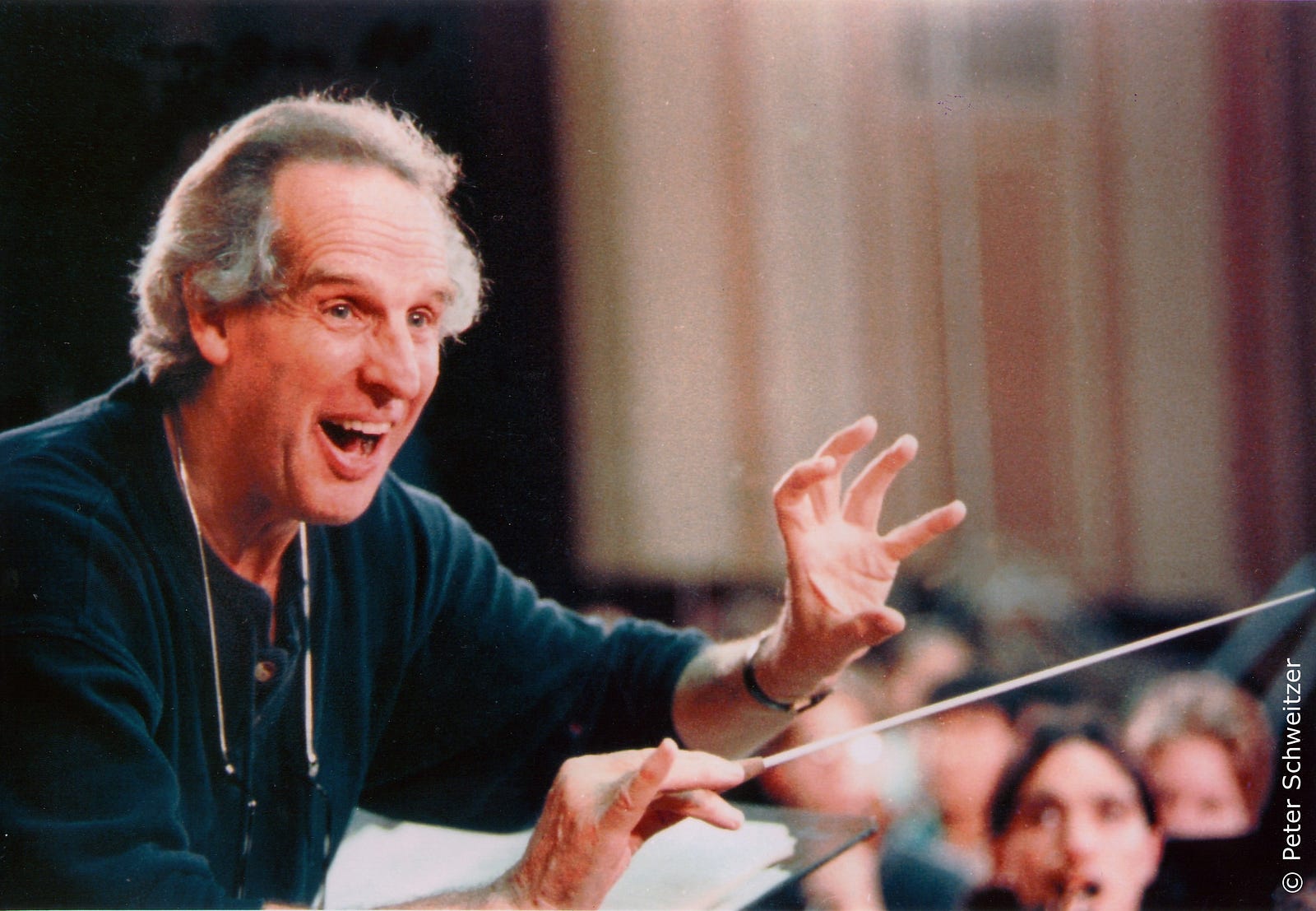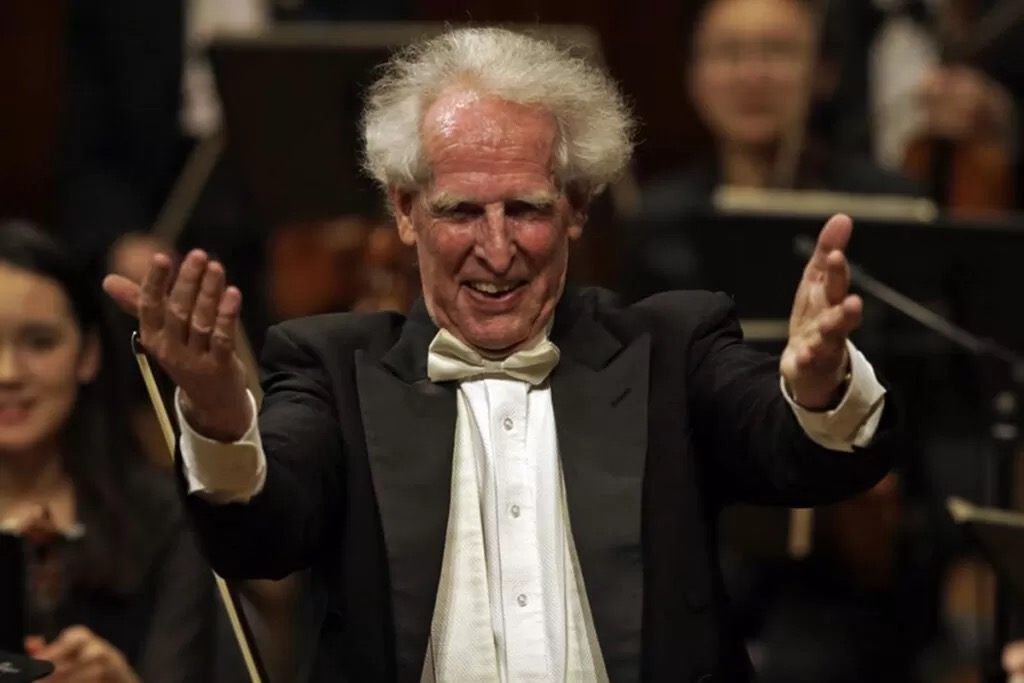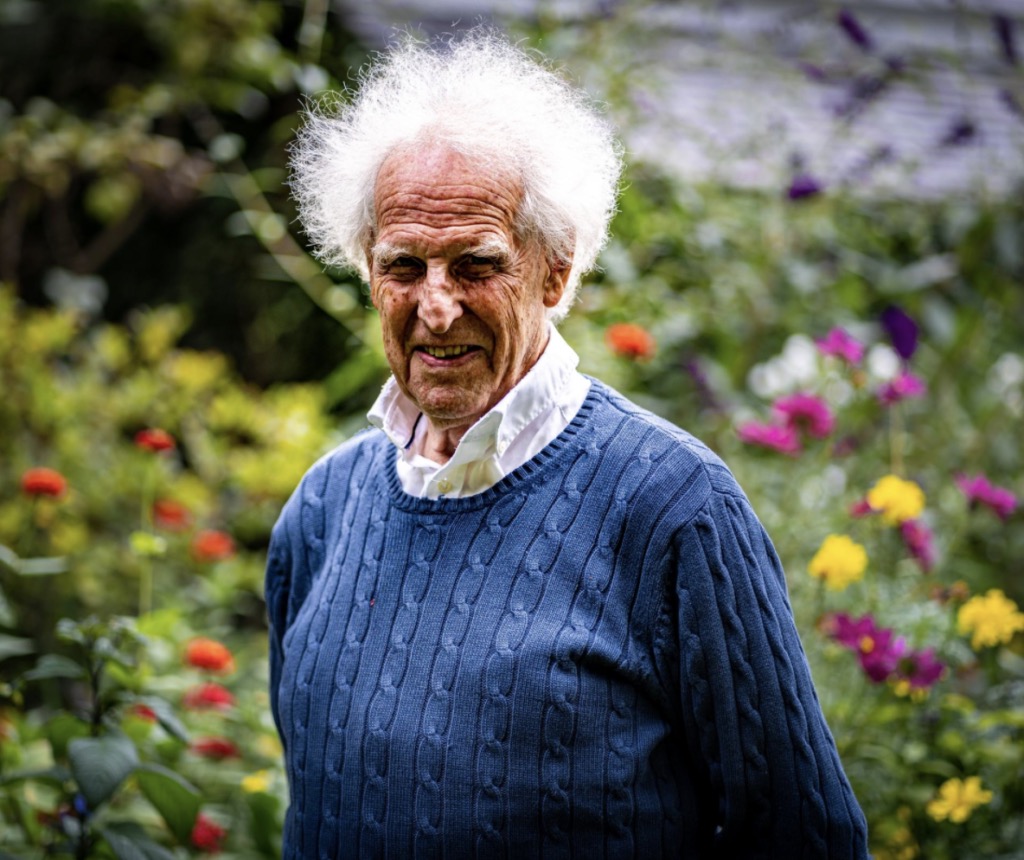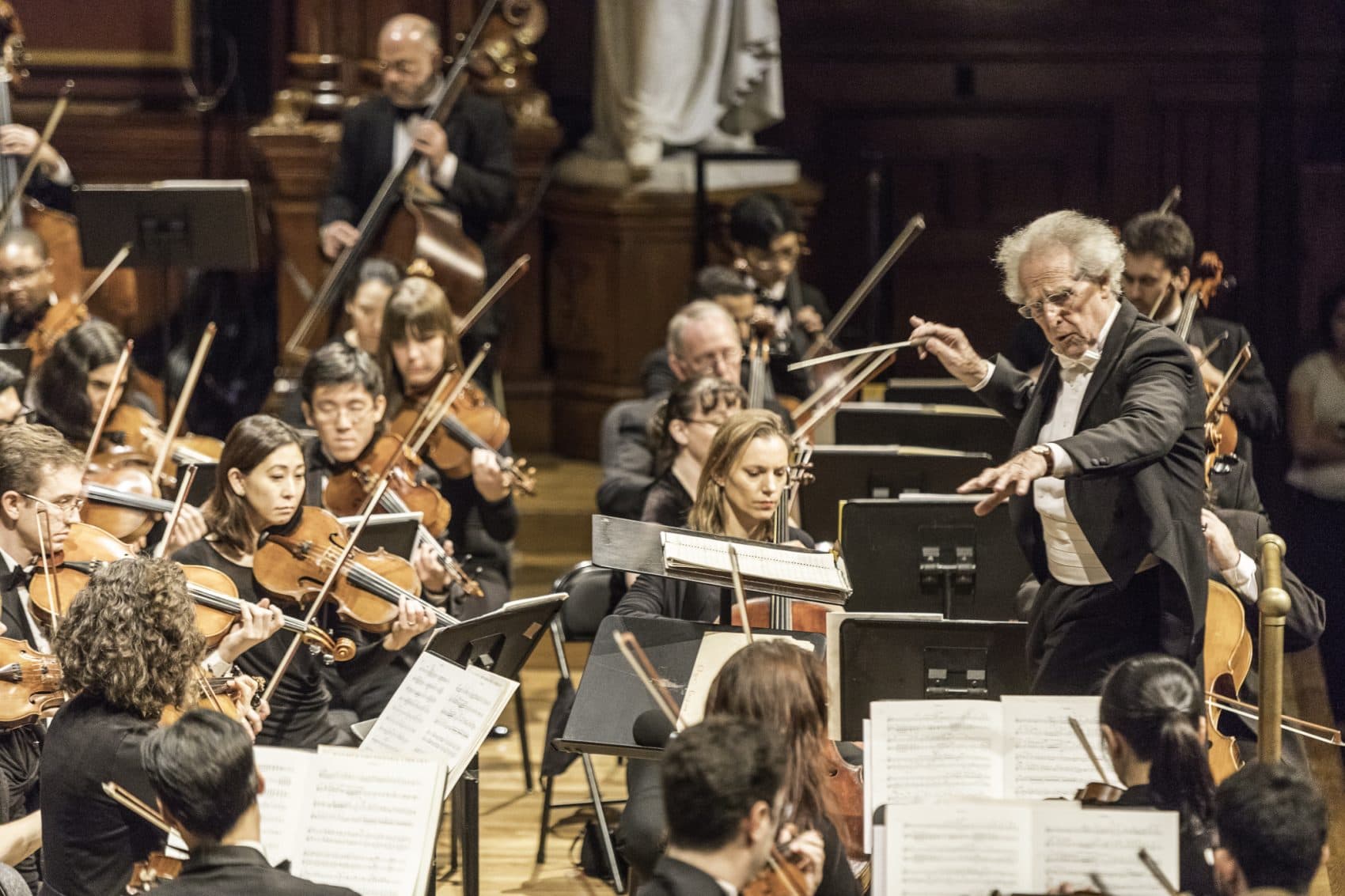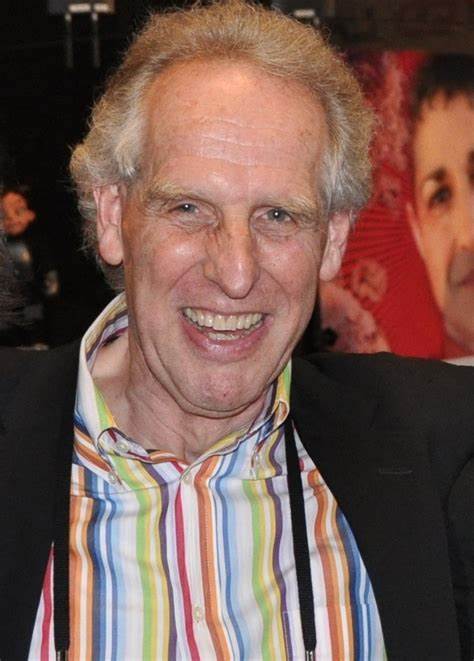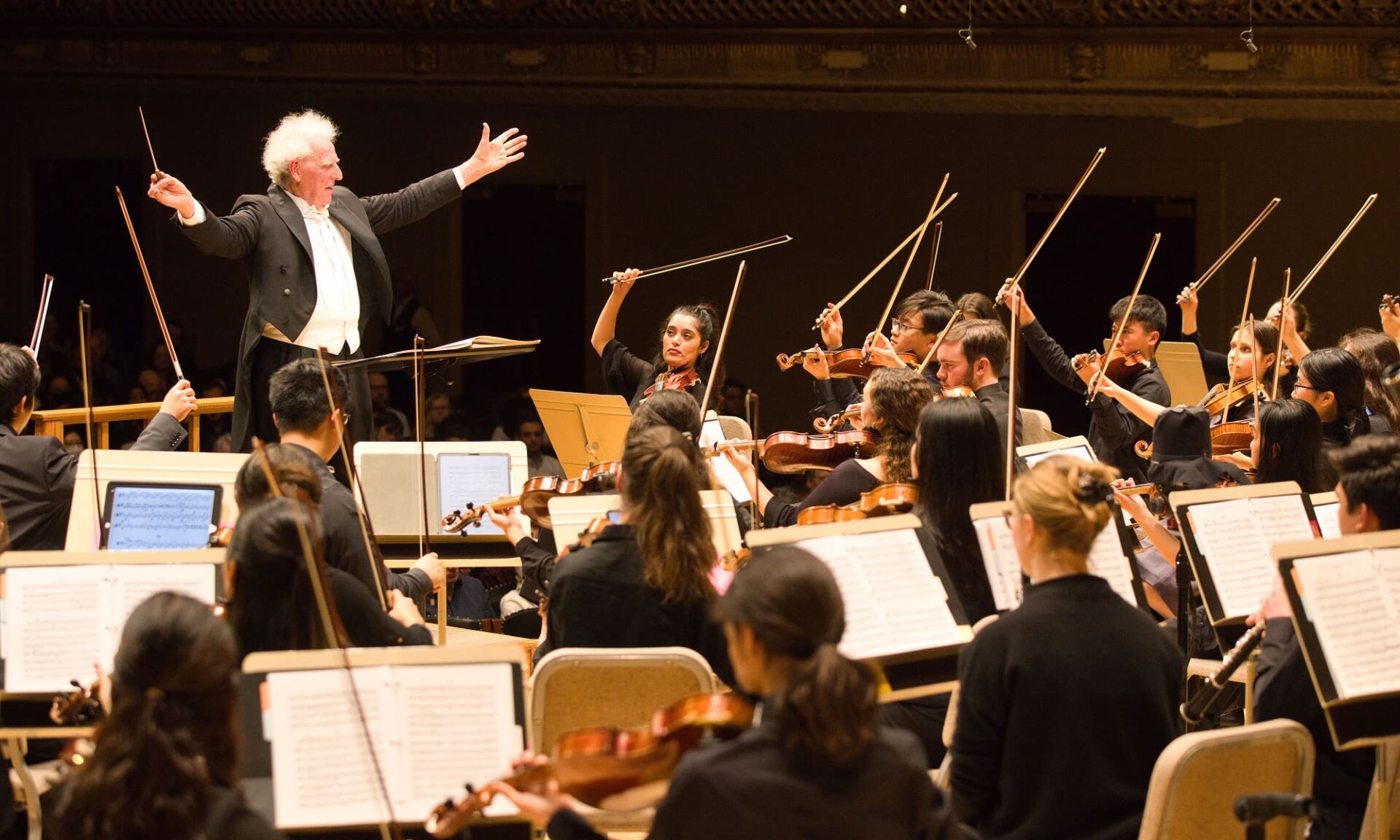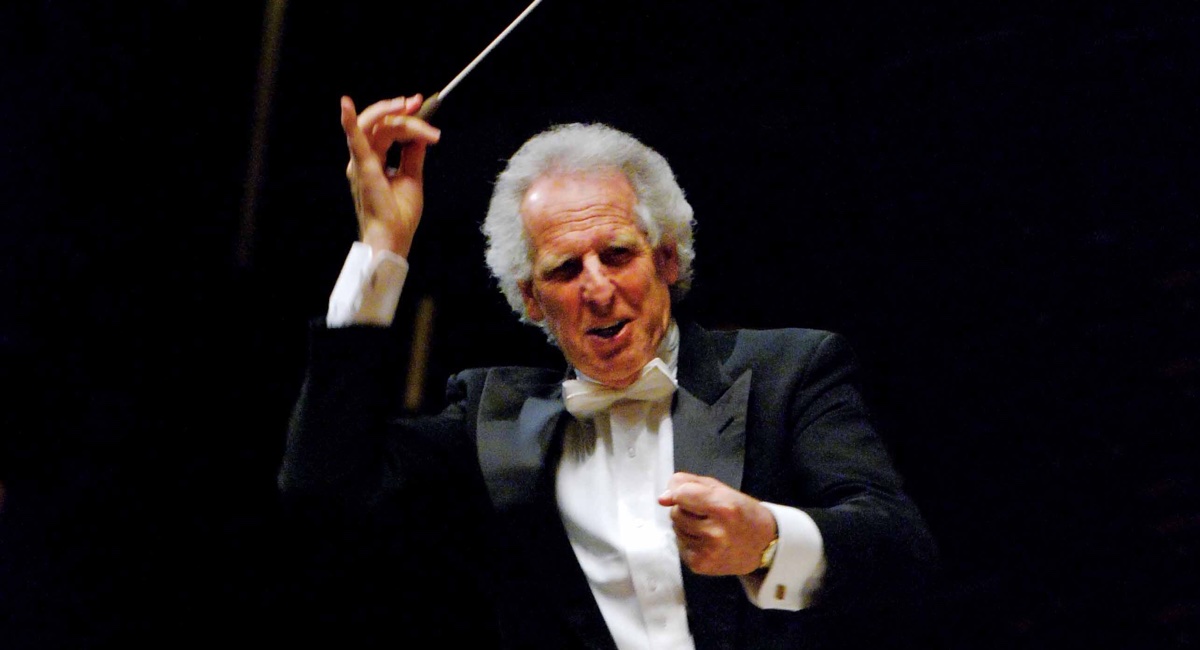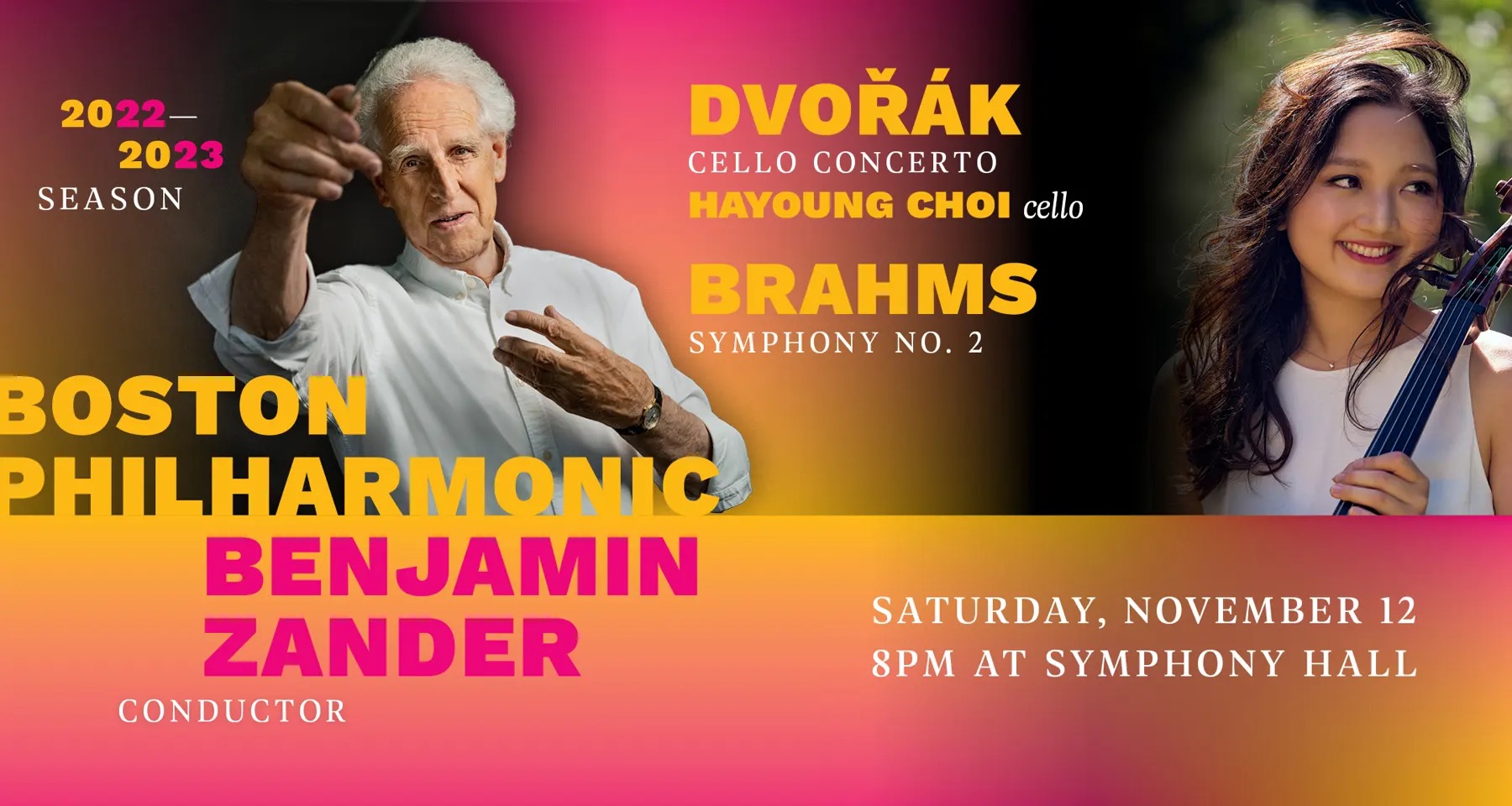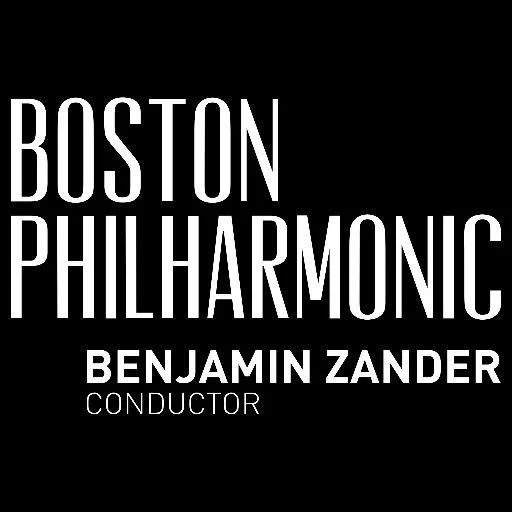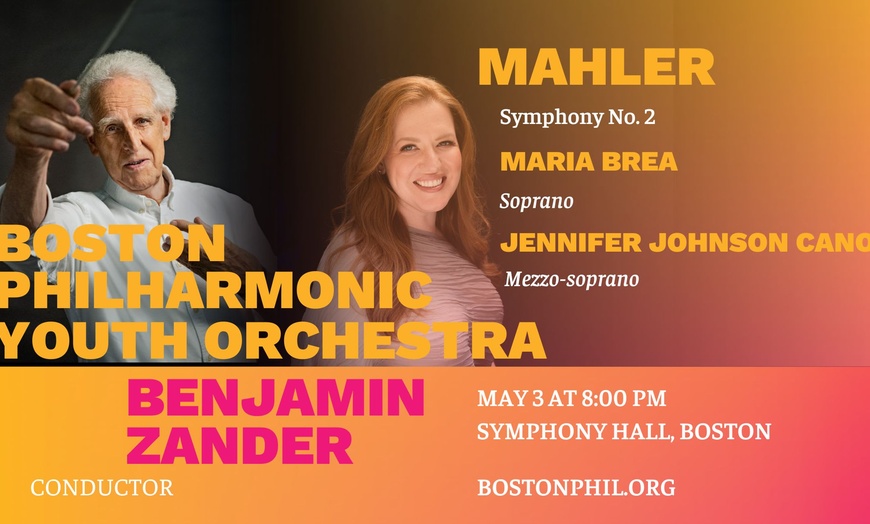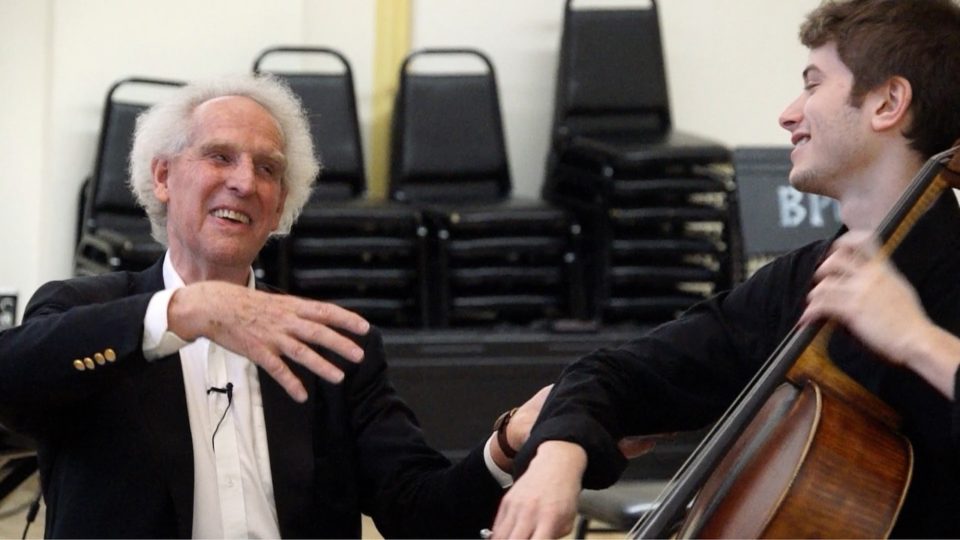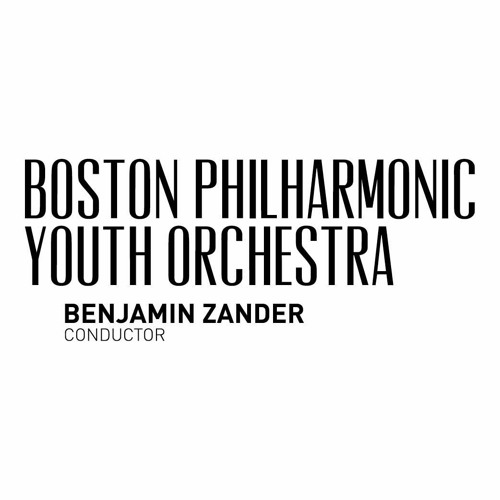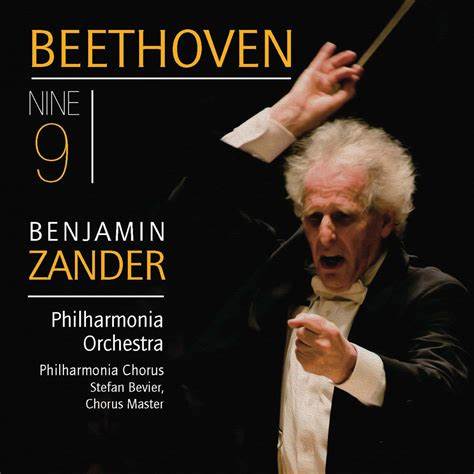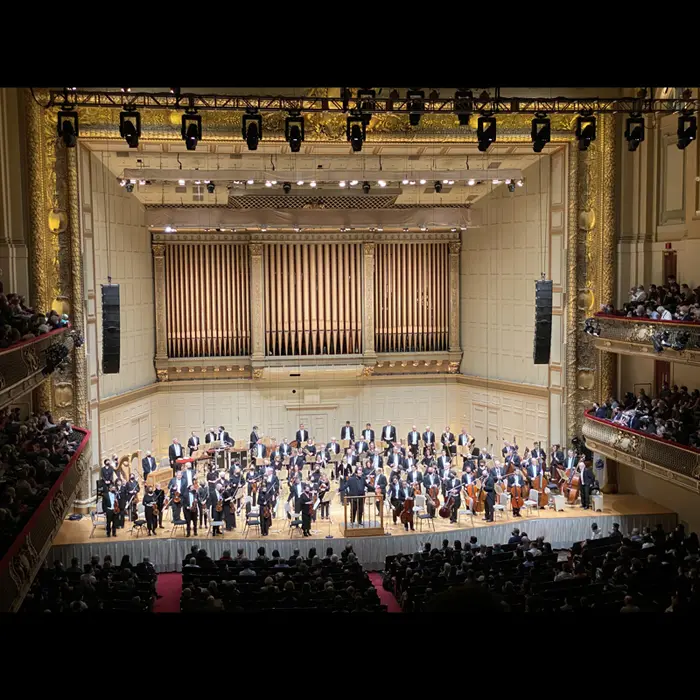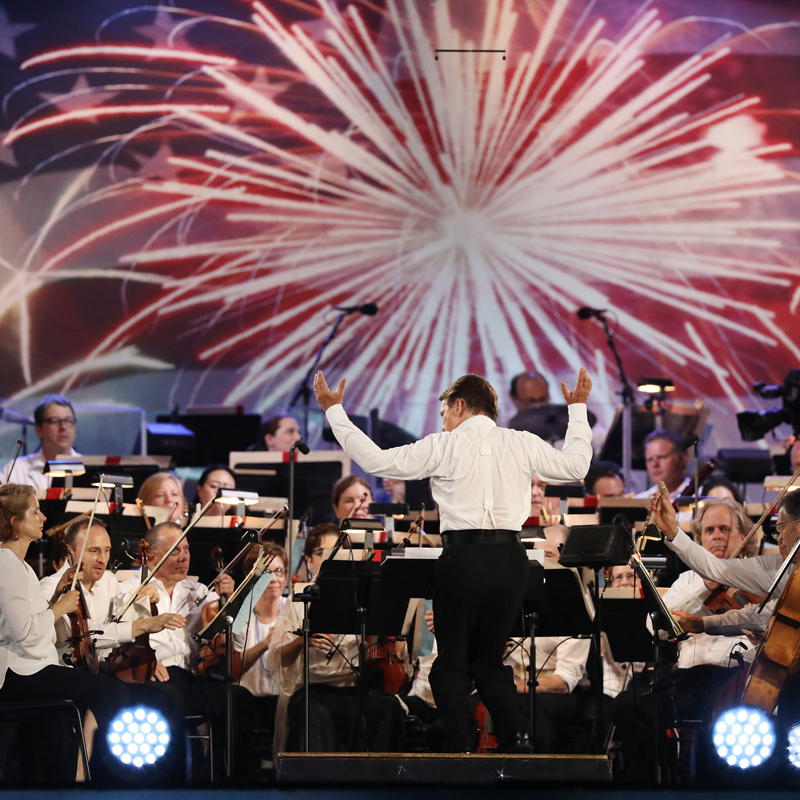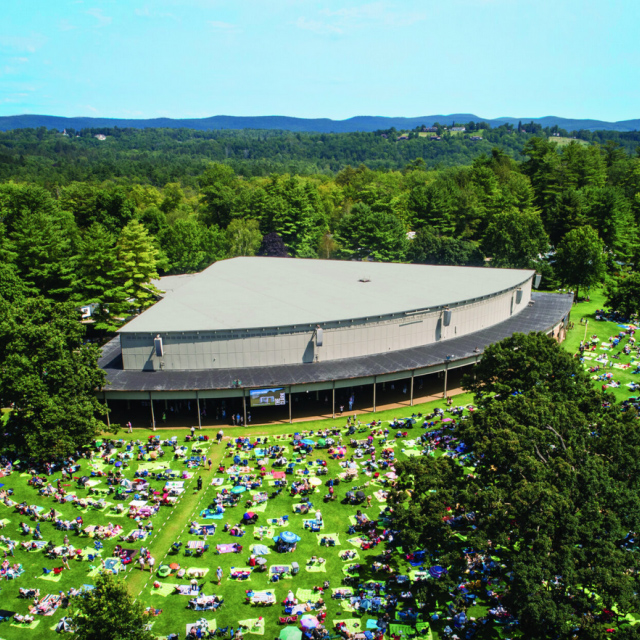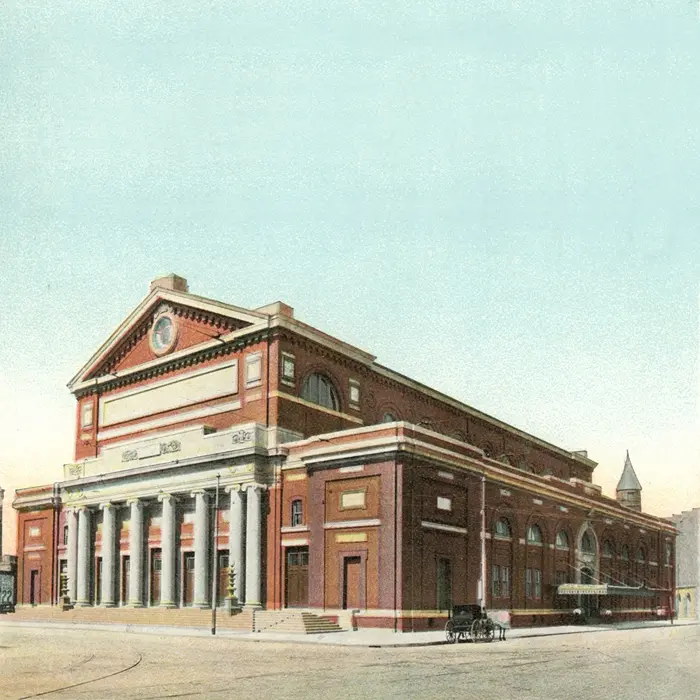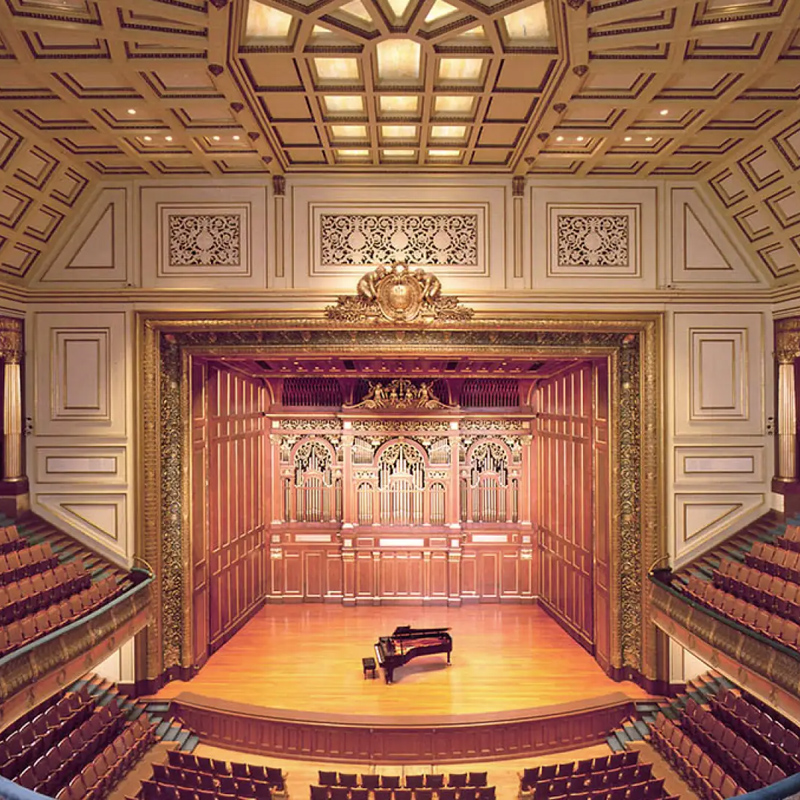Benjamin Zander / Boston Philharmonic
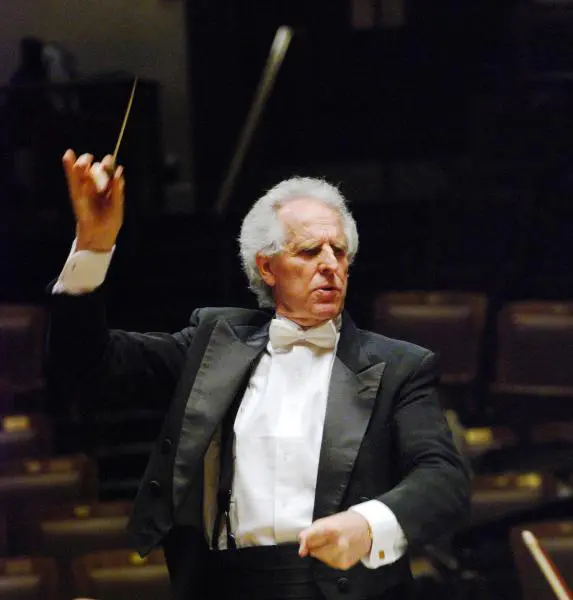
For the symphonically inclined, Boston is about as close to nirvana as it gets. Not only has it been home to two of the world’s most respected orchestras since the late 1800s, the Boston Symphony and the Boston Pops, but both are based at Symphony Hall, one of the most acoustically sublime venues on Earth. Given that, the myriad lesser-known ensembles that formed in Boston and greater New England in the early 1900s and Tanglewood’s opening in 1934, it’s arguable that the region’s classical offerings have been unparalleled in depth and scope for the better part of a century.
But in 1978, New England’s remarkably fertile symphonic soil became even richer thanks to Benjamin Zander, who established the Boston Philharmonic Orchestra that year at age 39. Prior to that, he’d trained with cello masters in England, Italy and Germany, was granted a prestigious fellowship that brought him to Harvard and Brandeis and had been on the faculty at New England Conservatory for 11 years. An Englishman by birth, Zander’s lived stateside since 1965 and his leadership of the BPO has created a cultural and creative melding of Old England and New England that’s truly unique, truly inspiring and truly magnificent.
Musical beginnings, Training, University
Zander was born in Gerrards Cross, Buckinghamshire (about 20 miles from central London) on March 9, 1939, his Jewish parents having emigrated there from Berlin in 1937, the year the Nazi-led government began incarcerating so-called “asocial” people, many of them Jews, in concentration camps. His father often sang and played piano at home, which helped instill a passion for music in Zander before he’d entered kindergarten. “I got it young,” he told Seth Daniel of The Boston Sun in 2019. “[My father] would come home from work and sit at the piano and play. His whole body would transform and he was ecstatic. I said to myself, ‘Whatever he’s having, I want to have it, too.’”
Zander started composing music on piano at age nine and began playing what became his main instrument, cello, the following year, becoming the youngest member of the National Youth Orchestra of Great Britain at age 12. He left London at age 13 to board at Uppingham School in England’s East Midlands, then returned to the city after a year to attend St. Paul’s School, where he trained under master cellist Herbert Wither and spent his summer vacations studying with composer-conductor-pianist Benjamin Britten (and later with Imogen Holst, Britten’s assistant). In 1954, 15-year old Zander left England for Italy, where he spent three years training under Spanish cello virtuoso Gaspar Cassadó, followed by two years working as Cassadó’s assistant at the State Conservatoire in Cologne, Germany. Zander returned to England in 1959 and graduated from University College London in 1964 with a with a degree in English literature. While there, he performed regularly as a cellist with The King-Zander-Arieli Trio and taught at the Yehudi Menuhin School for gifted children.
Move to Boston, New England Conservatory
Zander relocated to Boston in 1965 after receiving a Harkness International Fellowship that allowed him to do graduate work at Harvard and Brandeis, and he joined the faculty at New England Conservatory in 1967. During his 45-year tenure, he taught musical interpretation, founded the school’s joint program with Walnut Hill School in Natick, Massachusetts, led NEC’s Youth Philharmonic on 15 international tours and produced several documentaries for PBS.
Known among fellow faculty and students for his tireless work ethic and open communication style, Zander consistently championed his belief that music’s power reaches far beyond the stage and recording studio; above all, he was known to say as something of a mantra, it can be a vehicle for positive social connectivity and change. When he left NEC in 2012, the school gave him the title Faculty Emeritus in honor of his substantial contributions.
Boston Philharmonic, Boston Philharmonic Youth Orchestra
In a bold move considering Boston and the greater region’s plethora of existing symphonic ensembles, Zander founded the Boston Philharmonic Orchestra in 1978. It was comprised solely of amateur musicians at first but now includes professionals and is widely considered to be among the best of its breed in the United States. Under a stated vision that suits Zander’s cross-cultural pedigree to a tee – “passionate music making without boundaries” – the orchestra has expanded its number of annual performances from three in its early years to the current 24.
The late Boston Globe critic Michael Steinberg and other prominent figures have applauded Zander for his interpretations of classical compositions and the BPO’s performance of them, highlighting his knack for remaining true to their core while being unafraid to take risks. A February 2023 review in The Arts Fuse of his up-tempo take on Beethoven’s “Ninth Symphony” called it “comforting but audacious.” The orchestra has appeared at a number of different venues, among them Symphony Hall, NEC’s Jordan Hall and the Benjamin Franklin Institute of Technology in Boston and Edward M. Pickney Hall and Sanders Theatre in Cambridge.
In 2012, after 24 years as conductor and music director of the BPO, Zander added yet another symphonic ensemble to his adoptive city’s musicscape, the Boston Philharmonic Youth Orchestra, which is made up of musicians between ages 12 and 21 from all across the US. The BPYO premiered in November that year at Symphony Hall and made its overseas debut in 2013, performing in the Netherlands at Concertgebouw, known as one of the top three concert halls in the world in terms of acoustical design (the others being Musikvereinsaal in Vienna and Symphony Hall). In 2024, the orchestra appeared in Switzerland, Germany, Austria and the Czech Republic with Zander conducting.
Philharmonia Orchestra, Other orchestras
Zander has maintained an extremely active schedule outside his roles with NEC, the BPO and the BPYO over the years, among them recording with the London-based Philharmonia Orchestra. Since the early 2000s, he’s conducted the symphony on over a dozen albums to unanimous critical praise, winning an award from the German Record Critics Association and becoming a two-time Grammy nominee in the Best Orchestral Performance category.
In addition to his conducting activities in Boston over the decades, Zander has found the time and energy to lead orchestras the world over. Among them are the Israel Philharmonic, the Bournemouth Symphony, the Scottish National Orchestra, the Irish National Orchestra, the St. Petersburg Philharmonic, the Malaysian Symphony, the St. Louis Symphony Orchestra, the Indianapolis Symphony, the Tulsa Symphony Orchestra, the Toronto Symphony Orchestra, the Youth Orchestra of the Americas, and the National Youth Orchestras of New Zealand, Australia and Venezuela.
Non-musical activities, The Art of Possibility
Outside the musical realm, Zander has established something of a side gig on the international speaking circuit, including at heavyweight events such as the World Economic Forum in Davos, Switzerland, at which he’s delivered several keynote addresses and was presented with the Crystal Award for Outstanding Contributions in the Arts and International Relations. He’s led discussions on leadership with executives from Google, Johnson & Johnson, McDonald’s, Intel, Pepsi, Bloomberg and Kellogg’s, among others, and co-authored a book about leadership that’s been translated into 18 languages, The Art of Possibility (2002, Penguin). In 2008, Zander gave a TED talk titled “The Transformative Power of Classical Music” that over 18 million people have watched.
Among the many awards and accolades Zander has received are the Golden Door Award from the International Institute of Boston for “outstanding contributions to American society” (2007) and an honorary doctorate from New England Conservatory (2009). In 2019, he became the first non-South African to receive an Extraordinary Lifetime Achievement Award from the South Africa-based ABSA Group; previous recipients include Nelson Mandela and Desmond Tutu.
Career reflections
Speaking of career highlights in a 2019 interview, Zander cited working with the Boston Philharmonic Youth Orchestra as among them, noting that it’s given him the chance to improve some young people’s outlook on life and confirmed an opinion that he’s held for decades: absolutely nothing can unite and heal in quite the way that music can. “One of the secrets of getting old is to surround yourself with young people,” he said. “Their development and growth is critical but they’re so vulnerable that it can be destroyed easily. Sports are great, but they’re limited since it’s really about winning or losing. So, there’s a downside with sports, whereas with music there is no downside. It’s about the journey, human beings reaching for the stars. The symphony world is a world in which everybody is uplifted.”
Asked if he had any thoughts on his upcoming 80th birthday in 2019, he said he’s content with what he’s accomplished and enjoys all the freedom he has now compared to before, when he always practicing, performing, recording, conducting and traveling. “I’ve spent 55 years [in Boston] and 80 years old is a big one because you probably aren’t going to be in good enough shape to celebrate your 90th,” he said. “In life, you get four quarters: 20, 40, 60 and 80. From 80 on is overtime. But I think I’m more effective now than ever before. Things are really coming to fulfillment. I don’t have any bosses, so I do what I want. If it’s too much, then I only have myself to blame.”
(by D.S. Monahan)

